Directions (1-5): Table given below show the distribution of Balls of two companies P and Q sold by five different sellers. Some balls are for ODI Matches and remaining are for Test Matches. Study the data carefully and answer the following question.

Q1. Total Test Matches Balls of company ‘P’ sold by V is what percent more than total ODI Balls of company ‘Q’ sold by X?
(a) 35%
(b) 37.5%
(c) 40%
(d) 45%
(e) 50%
Q2. Total Balls sold by Y and Z together of company ‘Q’ is how much more than total Balls sold by X and Y together of company ‘P’.
(a) 900
(b) 850
(c) 800
(d) 750
(e) 700
Q3. Average number of ODI Balls of company P sold by U, V and X together is how much more than average number of ODI Balls of company P sold by Y and Z together.
(a) 200
(b) 225
(c) 250
(d) 300
(e) 350
Q4. Test Matches Balls of company P sold by X is what percent more than the same type of Balls sold by X of company Q?
(a) 40%
(b) 66⅔%
(c) 33⅓%
(d) 60%
(e) 54⅓%
Q5. Find the total number of Balls of company ‘Q’ sold by U & V together?
(a) 12,760
(b) 11,420
(c) 10,290
(d) 11,920
(e) 11,240
Q6. A shopkeeper marks up price of an article ‘2X’% above its cost price and difference between marked price & cost price is Rs. 480. Shopkeeper allows ‘X’ % discount and difference between marked price and selling price is Rs. 312 , find the overall profit of shopkeeper on selling the article?
(a) 144 Rs.
(b) 168 Rs.
(c) 196 Rs.
(d) 188 Rs.
(e) 180 Rs.
Q7. A bag contains only two colour balls i.e. red & green. Ratio of number of green balls to red balls is 4 : 3 is four green balls taken out from the bag, then the new ratio of green balls to red balls become 8 : 9. Find the probability of that if two balls taken out from the bags and both balls will be same colour?
(a) 17/35
(b) 17/38
(c) 14/35
(d) 12/35
(e) 11/35
Q8. A boat takes 8 hours more than to cover a certain distance in upstream to cover the same distance in downstream. If speed of boat increased by 50% of its previous speed, then boat takes only three hours more than to cover same distance in upstream to cover in downstream. Find the ratio of speed of stream to speed of boat?
(a) 1 : 3
(b) 1 : 4
(c) 1 : 2
(d) 2 : 3
(e) 2 : 5
Q9. Two pipes P and Q can fill tank A in 28 minutes and 56 minutes respectively and empty pipe M can empty the tank in 42 minutes, while capacity of tank is 168 litres. If all three pipes opened in tank B for (x – 24) minutes together they filled 90 liter of the tank which is 25% of the capacity of tank B. Find in x minutes what portion of tank B filled, if all pipe P and Q and M opened alternatively starting with P, followed by Q and M respectively?
(a) 5/36
(b) 7/36
(c) 9/38
(d) 7/38
(e) 7/39
Q10. 48 l water mixed in a container, which contain 120 l milk. 42 l mixture from container taken out and some quantity of water and milk mixed in the ratio of 2 : 1. If in the resulting mixture ratio of milk and water is 11 : 6, then find what quantity of water was added?
(a) 12 l
(b) 10 l
(c) 24 l
(d) 18 l
(e) 28 l
Directions (11-15): Given below bar graph shows percentage breakup of population of six cities (A, B, C, D, E, F) and population of G given in absolute value (in hundred), while line graph shows percentage of illiterate population in each cities. Read the data carefully and answer the question.
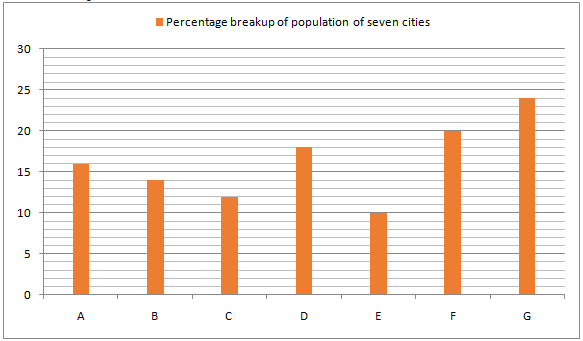
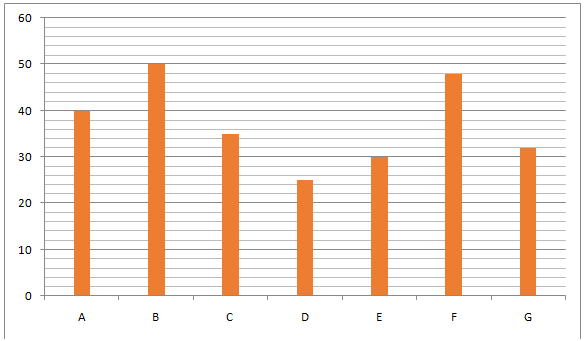
Q11. The average population of cities A, B & C is what percent less than the average population of cities D, E & F?
(a) 7.5%
(b) 10%
(c) 12%
(d) 12.5%
(e) 16%
Q12. If total population of city A is increased by 50%, and population of city B is decreased by 25%, then find total population of cities A & B together is approximately what percent of total literate population of cities D & F together?
(a) 148%
(b) 128%
(c) 144%
(d) 138%
(e) 150%
Q13. Total illiterate population of cities B & D together is how much less than total literate population of cities A & F together?
(a) 1880
(b) 2040
(c) 2404
(d) 2208
(e) 2200
Q14. The ratio of literate male to literate female in city C is 13 : 11 and that in city G is 5 :11, then find difference between literate female in both the cities?
(a) 288
(b) 240
(c) 256
(d) 244
(e) 264
Q15. Total illiterate male in the city E is 36% of total literate male in city D, then find the total illiterate female in city E is what percent of total literate female in city D?
(a) 18%
(b) 16%
(c) 26%
(d) Can’t be determined
(e) 32%
Solutions
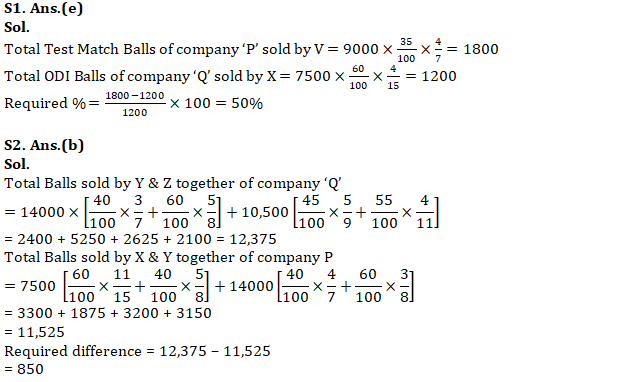
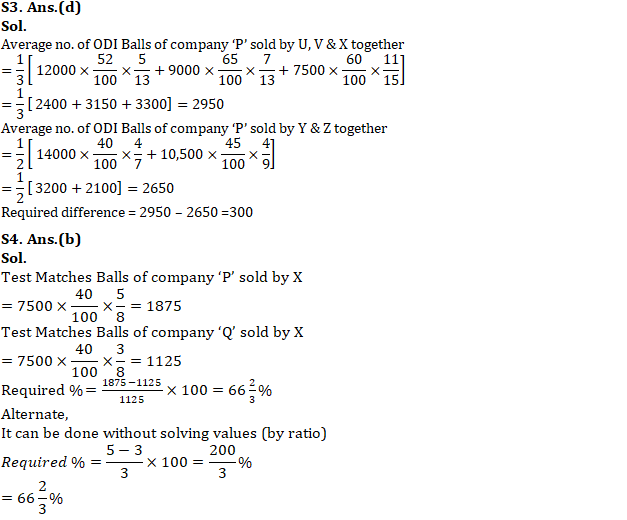

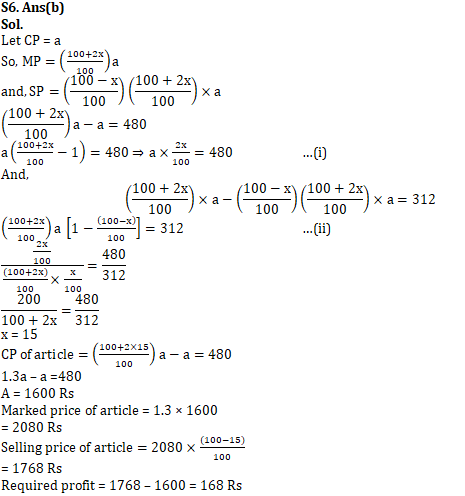
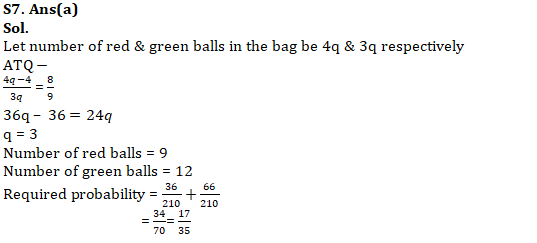
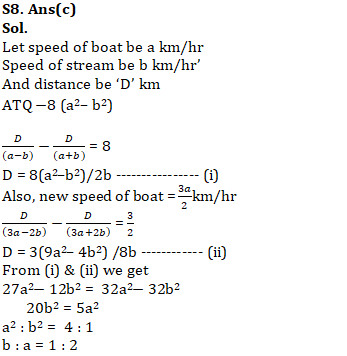
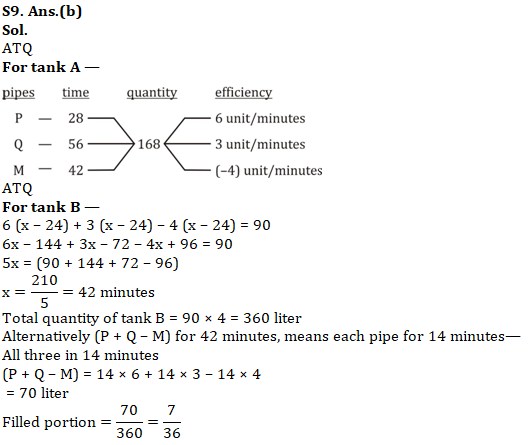
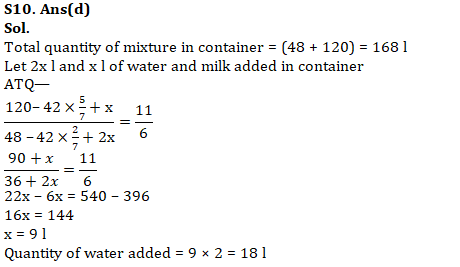
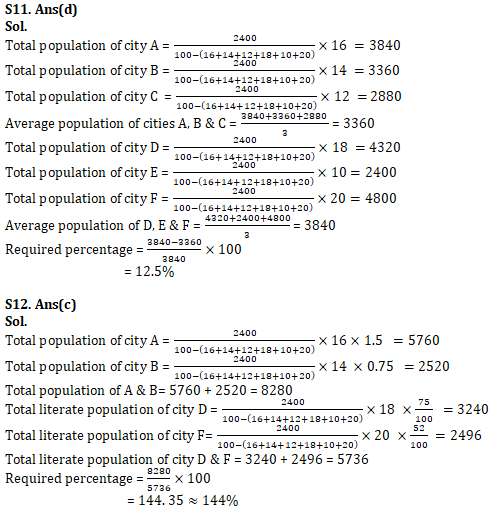
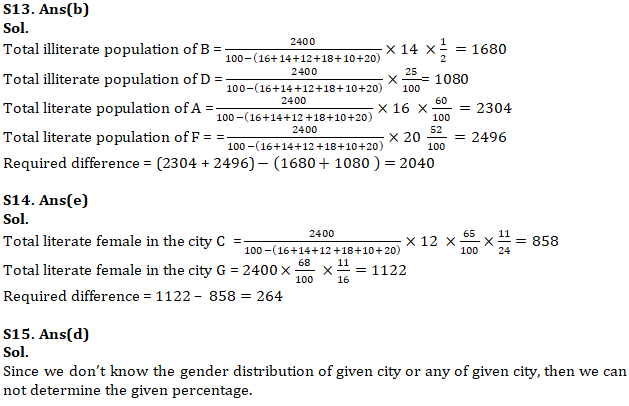



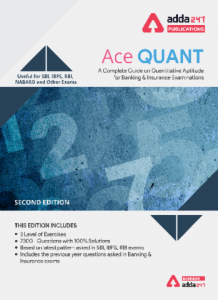

 GA Capsule for SBI Clerk Mains 2025, Dow...
GA Capsule for SBI Clerk Mains 2025, Dow...
 The Hindu Review October 2022: Download ...
The Hindu Review October 2022: Download ...
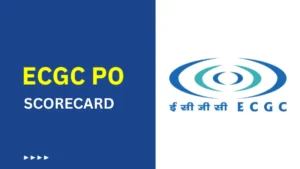 ECGC PO Scorecard 2025 Out, Check Marks
ECGC PO Scorecard 2025 Out, Check Marks




